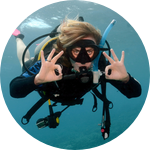About This Project
In Eternal Sunshine of the Spotless Mind, Jim Carrey and Kate Winslet erase their shared memories to avoid the emotional burden of a separation. Although in humans erasing selective memories is still science fiction, converging results indicate that specific emotional memories can be targeted and potentially modified during sleep. We aim to develop a novel tool to modify emotional memories with the goal of reducing negative feelings.
Ask the Scientists
Join The DiscussionWhat is the context of this research?
Negative emotional reactions can lead us to avoid life experiences that will provoke bad feelings. These maladaptive behaviors can become chronic and debilitating. Recent studies suggest that memories for negative emotions can be modified during sleep. Indeed, sleeping just after an exposure session reduces fear responses to phobic stimuli. Additionally, presenting a sound during sleep that was previously matched with a threatening stimulus, decreases emotional response to that threat. Thus, we hypothesize that re-presenting cues associated with phobic stimuli during sleep may be a potential treatment for decreasing negative emotional reactions in real-world anxiety disorders.
What is the significance of this project?
About 10% of the US population suffers from anxiety disorders, which significantly reduces quality of life in these people. Therefore, the need for novel, cost-effective interventions to treat these disorders is critical and timely. This project uses a bench-to-bedside approach by bringing cutting edge laboratory findings from emotional memory research to treating real-world anxiety disorders, such as phobia. By capitalizing on state-of-the-art methods in sleep research, our project may significantly improve quality of life and promote long-lasting positive health outcomes in people with phobia, with minimal conscious effort required by participants.
What are the goals of the project?
The first goal is to develop a test bed of experimental paradigms in healthy adults that will measure negative emotions using cognitive tests and psychophysiological measures. Second, we will implement and validate the sleep reactivation protocol with the experimental emotional stimuli and psychophysiological biomarkers. Third, we will test the final paradigm on individuals with blood-injection-injury (BII) phobia. Thus, the overall goal is to develop a novel treatment aimed to reduce the avoidance behaviour in people with phobia, which would have the potential to treat a wide range of anxiety disorders.
Budget
In order to test our method, we need to recruit participants (n = 50), which will have to spend a whole day in our lab performing memory tasks while wearing devices to collect brain and peripheral physiological signals. Therefore, most of the funding will serve to compensate participants and to buy laboratory consumables necessary for physiological recordings (e.g., electrodes, conductive gels).
To reduce the costs, we will use equipment (e.g., high density EEG; heart rate, electrodermal and electromyogram activity recording; pupillometry) and software already available to the lab.
This funding will enable refining of the paradigm to be used in subsequent studies, including individuals who experience emotional dysregulation, such as those diagnosed with blood-injection-injury (BII) phobia. BII patients avoid and excessively fear reactions to blood and blood-related contents (injuries, injections, and medical procedures) to which they have shown paradoxical physiological responses.
Endorsed by
Meet the Team
Affiliates
Nicola Cellini
I am a Senior Postdoctoral fellow at the University of Padova, Italy, and a consultant for the University of California Riverside, USA. I attended the University of Bologna, Italy, where I received a BS in Behavioral Science and a MS in Applied Cognitive Science. Then, I moved to the University of Padova, where I obtained a PhD in Psychological Sciences studying the the effects of sleep on autonomic regulation, cardiovascular activity, and cognitive processing. My thesis work has been recently awarded by the Italian Association of Sleep Medicine with the Igino Fagioli Award for the Best Doctoral Thesis in Basic Sleep Research.
My main research interest is to understand how the human brain processes, and remembers information during wake and sleep. Using electrophysiological and behavioral techniques, I explore the relationships between cortical and autonomic changes during wake and sleep, and their impact on cognitive functions in clinical and non-clinical populations. Findings of my studies have been presented at several international conferences and published in high-quality peer-reviewed journal.
My long-term aim is to translate these basic research findings into potential tools for improving memory, emotional regulation, well-being, and quality of life in healthy and clinical populations.
Sara C Mednick
I am an Associate Professor in the Department of Psychology at the University of California, Riverside and author of the book, Take a Nap! Change your Life. In 2003, I received her PhD in psychology from Harvard University working with Ken Nakayama and Robert Stickgold. She moved to the Salk Institute for Biological Studies in La Jolla, CA with a three-year, National Institute of Health funded, National Research Service Award fellowship, where I was trained with Geoffrey Boynton and Sean Drummond. In fall 2007, I became faculty at University of California, San Diego and was awarded a five-year, National Institute of Mental Health funded, K01 Mentored Research Scientist Award. In 2011, I moved my lab to UC Riverside. I have conducted studies in conjunction with numerous academic institutions, the U.S. Navy, V.A. Medical Center and private businesses. My articles have been published in such leading scientific journals as Nature Neuroscience and The Proceedings from the National Academy of Science. My napping research has been covered by CNN, Reuters TV, NPR, The Economist, The Wall Street Journal, Consumer Reports Health Journal, Reader's Digest, The New York Times and many other major media outlets.
Project Backers
- 7Backers
- 9%Funded
- $322Total Donations
- $46.00Average Donation



